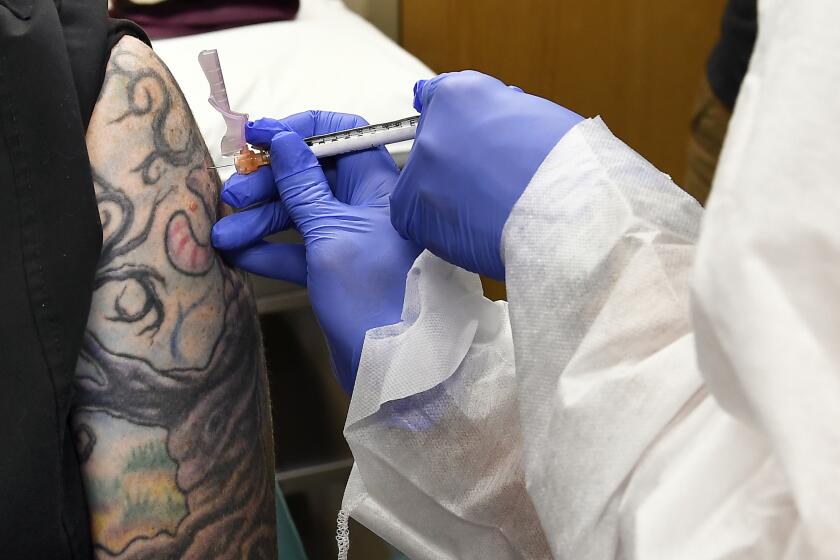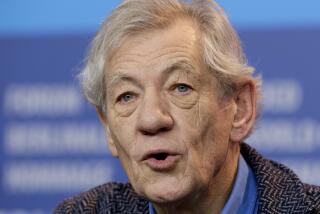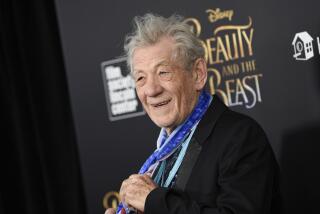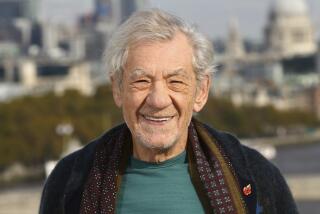‘Euphoric’ Ian McKellen celebrates getting first dose of COVID-19 vaccine
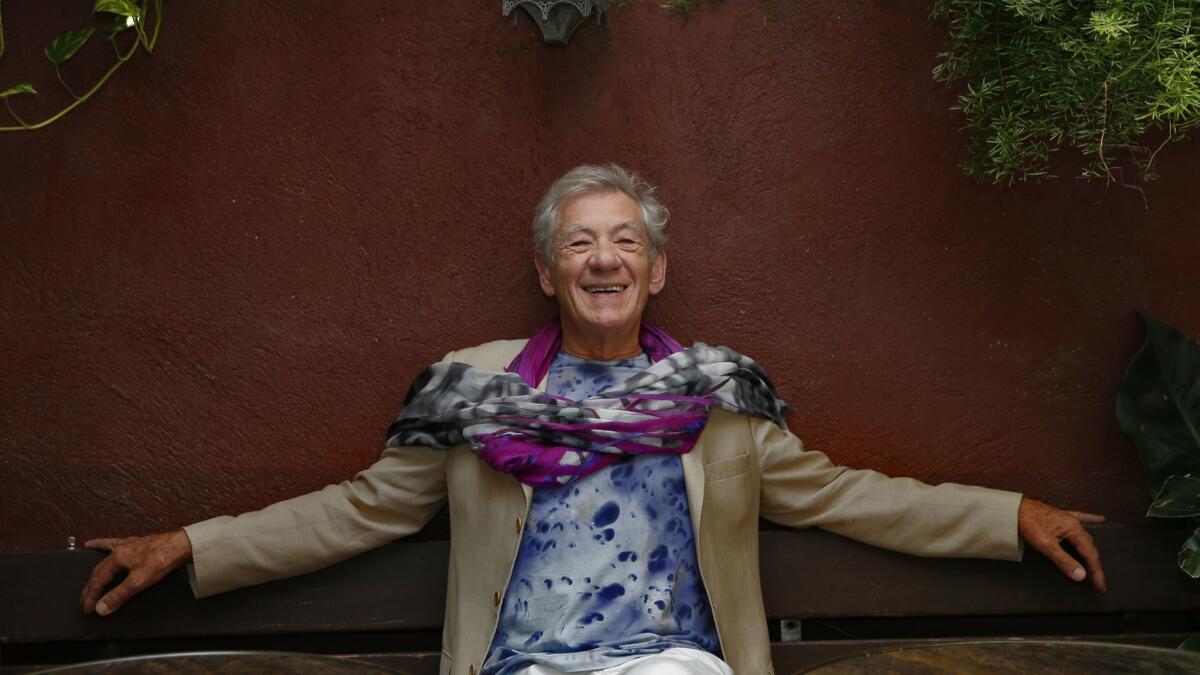
- Share via
Actor Ian McKellen has become the poster boy for the United Kingdom’s sprawling COVID-19 vaccine campaign, preserving the national treasure from the pandemic that has claimed the lives of 1.65 million people globally.
The 81-year-old “Lord of the Rings” and “X-Men” star received his first dose of the vaccine Wednesday at the Art Pavilion in London. He praised the publicly funded National Health Service on its administration of the Pfizer-BioNTech drug during the pandemic. It was a much more positive celebrity-related coronavirus development out of London this week. (Side-eyeing you, Tom Cruise.)
McKellen said that he felt “very lucky to have had the vaccine” and would recommend it to anyone without hesitation. A tweet from the NHS London Twitter account quoted the veteran thespian as being “euphoric.”
“I really hope that, as more people get vaccinated, we will move further along the path back to a more normal way of life, particularly for the arts which have suffered so much this year,” the stage and screen star said in a statement issued by NHS. “We all have a part to play in the fight against coronavirus and doing our bit and getting vaccinated will save lives.”
McKellen was among the first groups of people eligible for the vaccine in Britain. That includes people over 80 years old, NHS staff and home-care staff. “Great British Baking Show” star Prue Leith and television producer Michael Whitehall are among the other celebrity Britons who have received their first shots.
“That’s the real bonus of all this, to watch and see what works in this country and what doesn’t work — and it seems to me the NHS is right at the top of the list for institutions that do work,” McKellen told ITV. “Of course, I know I wouldn’t be alive if it wasn’t for the NHS. I’m a little bit older than the NHS, but when I was a kid, having good medical treatment available when it was needed — what a wonderful notion,” he continued.
The actor described the vaccination as “invasive” but didn’t mind it too much: “It looks like a weapon — a needle — but it isn’t, it’s a friend!” He also said that, six days after his second dose, he’d like to give the healthcare workers a big hug if it’s allowed.
If the COVID-19 vaccine from Pfizer and BioNTech was good enough to get a nod from the FDA, the vaccine from Moderna and the NIH almost certainly is as well.
U.K. health regulators led the charge on the vaccination campaign when it approved Pfizer and Germany’s BioNTech’s two-dose vaccine for emergency use Dec. 1 following large-scale clinical trials. They began administering the first inoculations Dec. 7.
In the U.S., the Food and Drug Administration authorized emergency use of the drug days later, and healthcare workers in hospitals began receiving the first vaccinations Monday. In Phase 3 clinical trials involving more than 43,000 volunteers, the experimental vaccine was found to be 95% effective in preventing COVID-19.
Like other routine vaccinations, the Pfizer vaccine works by teaching the immune system how to defend itself against attack. The doses are injected in the upper arm at least 21 days apart. The vaccine developed by American biotech company Moderna and the National Institutes of Health requires one dose. On Thursday, it was set for approval for emergency use by the FDA after being endorsed by a government panel. The experimental drug boasts about a 94% overall efficacy rate at preventing COVID-19, according to early studies.
Both vaccines prime the immune system to attack the coronavirus that causes COVID-19 by delivering a snippet of the virus’ genetic code. That code — known as messenger RNA, or mRNA — instructs the body to build copies of the spike protein that studs the virus’ surface. The immune system responds by creating antibodies, which remain on standby until confronted by an actual infection.
More to Read
Only good movies
Get the Indie Focus newsletter, Mark Olsen's weekly guide to the world of cinema.
You may occasionally receive promotional content from the Los Angeles Times.
